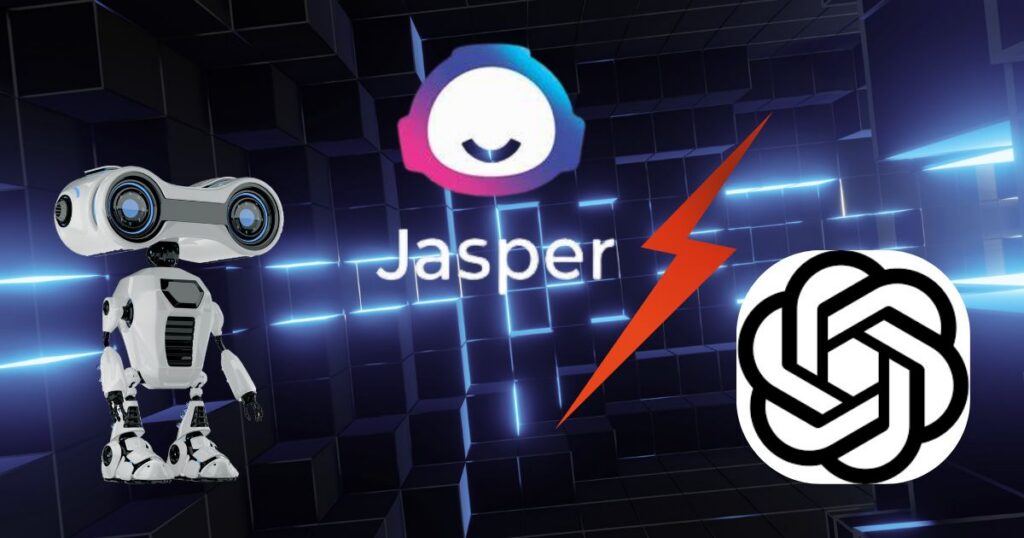
Ever stared at a blank meta description field, wondering what to write? You’re not alone. I was chatting with a client last week who confessed she spent nearly an hour crafting meta descriptions for each page. “It’s the first thing people see in search results,” she explained, “but I never know if what I’m writing will actually drive clicks.”
That’s where AI tools like Jasper and ChatGPT come in. In 2025, these powerful assistants have revolutionized meta tag optimization, turning a time-consuming chore into a strategic advantage you can leverage in minutes.
Why meta tags still matter in 2025
Despite all the changes in search algorithms, meta tags remain crucial touchpoints in the user journey. They’re your first opportunity to convince someone to click on your result instead of a competitor’s.
“Meta descriptions are essentially free advertising space on Google’s first page,” explains Dunja Radonic, SEO specialist. “With the right approach, you can significantly increase your click-through rate without changing your rankings.”
The challenge? Writing compelling meta descriptions that stay within the optimal 150-160 character limit, incorporate target keywords naturally, convey value, and match search intent, all while avoiding duplication across your site.
Jasper: The specialized marketing AI for meta tags
Jasper has established itself as a purpose-built AI specifically designed for marketing tasks, and meta tag optimization is one of its standout capabilities.
Brand-consistent meta descriptions at scale
One of Jasper’s biggest advantages is its Brand Voice feature, which ensures all your meta descriptions maintain consistent messaging and tone. This is particularly valuable for larger websites where multiple team members might be creating content.
“Before using Jasper, our meta descriptions were wildly inconsistent across our 200+ product pages,” shares Benjamin Rojas, an e-commerce specialist. “Jasper solved this problem overnight.”
The platform allows you to generate meta descriptions that align with your brand guidelines, create variations to test different approaches, and optimize for specific keywords while maintaining readability.
Jasper also integrates with SEO tools like Surfer SEO, allowing you to optimize your meta tags based on what’s currently ranking well for your target keywords.
ChatGPT: The versatile option for meta tag creation
While Jasper specializes in marketing content, ChatGPT offers impressive versatility for meta tag optimization, especially with its 2025 updates focused on SEO capabilities.
Conversational meta tag generation
ChatGPT excels at creating meta descriptions that sound natural and conversational—a key factor in encouraging clicks. Its ability to understand context and search intent makes it particularly effective.
“I’ve found ChatGPT especially useful for creating meta descriptions that address specific user questions,” notes Jason Lee, a digital marketing consultant. “For example, if I’m targeting ‘how to fix a leaky faucet,’ ChatGPT naturally frames the meta description as a solution to that specific problem.”
To get the most out of ChatGPT, provide clear context about your page content, specify your target keywords, include your desired tone, and request multiple variations to choose from.
Practical workflow: Integrating AI meta tag tools
The most effective approach combines both tools with your broader SEO workflow, as outlined in our main article on how to use AI tools to automate your SEO workflow.
Here’s a streamlined process:
- Audit your existing meta tags to identify improvement opportunities
- Generate optimized alternatives using either Jasper or ChatGPT
- Review and refine the AI suggestions
- Implement and track performance to see which versions drive more clicks
- Scale the process across your entire site
This approach works particularly well alongside other AI-powered SEO tasks like keyword research in minutes with tools like SEMrush AI and LowFruits.
Jasper vs. ChatGPT: Which is better for meta tags?
Choose Jasper if:
- You need to generate meta tags at scale for many pages
- Brand consistency is a top priority
- You want specialized marketing-focused outputs
- You need integration with other SEO tools
Choose ChatGPT if:
- You’re working with a limited budget
- You need a versatile tool for many different tasks
- You prefer a more conversational approach
- You’re handling a smaller number of pages
Many SEO professionals actually use both: ChatGPT for initial brainstorming and unique cases, and Jasper for scaling the process across larger sites.
Real-world results
The proof is in the performance. According to a recent study, websites that implemented AI-optimized meta descriptions saw an average CTR increase of 27% compared to their previous manually written versions.
“We A/B tested AI-generated meta descriptions against our original ones for 50 high-traffic pages,” reports Sarah Chen, SEO Director at a Fortune 500 tech company. “The AI versions outperformed the originals on 43 of the 50 pages, with an average CTR improvement of 32%.”
These results aren’t just about saving time—they represent real business impact through increased traffic without changing rankings.
Work smarter, not harder
Meta tag optimization doesn’t have to be the time sink it once was. With tools like Jasper and ChatGPT, you can transform this critical but tedious task into a strategic advantage that takes minutes rather than hours.
Ready to take your SEO automation further? Explore our detailed guides on creating a content calendar with AI and streamlining site audits with AI plugins.
